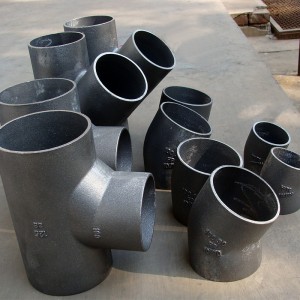- Afrikaans
- Albanian
- Amharic
- Arabic
- Armenian
- Azerbaijani
- Basque
- Belarusian
- Bengali
- Bosnian
- Bulgarian
- Catalan
- Cebuano
- China
- China (Taiwan)
- Corsican
- Croatian
- Czech
- Danish
- Dutch
- English
- Esperanto
- Estonian
- Finnish
- French
- Frisian
- Galician
- Georgian
- German
- Greek
- Gujarati
- Haitian Creole
- hausa
- hawaiian
- Hebrew
- Hindi
- Miao
- Hungarian
- Icelandic
- igbo
- Indonesian
- irish
- Italian
- Japanese
- Javanese
- Kannada
- kazakh
- Khmer
- Rwandese
- Korean
- Kurdish
- Kyrgyz
- Lao
- Latin
- Latvian
- Lithuanian
- Luxembourgish
- Macedonian
- Malgashi
- Malay
- Malayalam
- Maltese
- Maori
- Marathi
- Mongolian
- Myanmar
- Nepali
- Norwegian
- Norwegian
- Occitan
- Pashto
- Persian
- Polish
- Portuguese
- Punjabi
- Romanian
- Russian
- Samoan
- Scottish Gaelic
- Serbian
- Sesotho
- Shona
- Sindhi
- Sinhala
- Slovak
- Slovenian
- Somali
- Spanish
- Sundanese
- Swahili
- Swedish
- Tagalog
- Tajik
- Tamil
- Tatar
- Telugu
- Thai
- Turkish
- Turkmen
- Ukrainian
- Urdu
- Uighur
- Uzbek
- Vietnamese
- Welsh
- Bantu
- Yiddish
- Yoruba
- Zulu
Oct . 12, 2024 01:01 Back to list
die cast aluminium alloy
Die Cast Aluminium Alloy A Comprehensive Overview
Die casting is a highly efficient manufacturing process that allows for the creation of complex shapes with excellent dimensional accuracy and a smooth surface finish. Among the various materials used in this process, die-cast aluminium alloys stand out for their unique properties, making them suitable for a wide range of applications across diverse industries.
Understanding Die Cast Aluminium Alloys
Die cast aluminium alloys are metal mixtures primarily composed of aluminium, combined with other elements such as silicon, copper, and magnesium. These alloys are categorized into two main types sand cast and die cast. The die casting process involves forcing molten metal into a mold under high pressure, which results in rapid solidification and the formation of intricate designs without the need for substantial machining.
One of the essential characteristics of aluminium alloys used in die casting is their lightweight nature. This attribute is particularly advantageous in industries like automotive and aerospace, where weight reduction is crucial for enhancing fuel efficiency and overall performance. In fact, components made from die-cast aluminium can weigh up to 30% less than their steel counterparts, making them an attractive alternative in various applications.
Mechanical Properties and Benefits
die cast aluminium alloy

Die cast aluminium alloys exhibit several mechanical properties that contribute to their widespread use. They possess good strength-to-weight ratios, excellent corrosion resistance, and high thermal and electrical conductivity. The presence of silicon in the alloy enhances fluidity during the casting process, ensuring detailed features can be accurately reproduced. Additionally, the process itself allows for a high degree of automation, reducing labor costs and increasing production efficiency.
Another significant benefit of die cast aluminium alloys is their ability to be recycled. Aluminium is one of the most recycled materials globally, and the recycling process consumes only a fraction of the energy required to produce new aluminium. This sustainability advantage not only lowers production costs but also aligns with the growing emphasis on eco-friendly manufacturing practices.
Applications in Various Industries
The versatility of die-cast aluminium alloys makes them suitable for a diverse array of applications. In the automotive industry, they are used in the production of engine blocks, transmission cases, and various housing components. In consumer electronics, die-cast aluminium enclosures provide robust protection while maintaining aesthetic appeal. Furthermore, the construction industry benefits from these alloys in the production of architectural elements and hardware.
Conclusion
In summary, die cast aluminium alloys are a vital material in modern manufacturing, providing a combination of lightweight, strength, corrosion resistance, and recyclability. Their ability to be shaped into complex forms with high precision makes them indispensable across various sectors. As industries continue to evolve and seek innovative solutions for efficiency and sustainability, die-cast aluminium alloys are poised to play an even more significant role in meeting these challenges. The future of manufacturing is bright with the continued advancements in die-cast technology and the properties of aluminium alloys.
-
Premium Cast Iron Water Main Pipe: Durable, Corrosion-Resistant
NewsAug.03,2025
-
Durable Cast Iron Water Mains | AI-Optimized Systems
NewsAug.02,2025
-
High-Efficiency Propane Boiler for Baseboard Heat | Save Energy
NewsAug.01,2025
-
Premium Source Suppliers for Various Gray Iron Castings
NewsJul.31,2025
-
Durable Cast Iron Water Main Pipes | Long-Lasting
NewsJul.31,2025
-
High-Quality Cast Iron Water Main Pipe for Durable Infrastructure
NewsJul.30,2025


